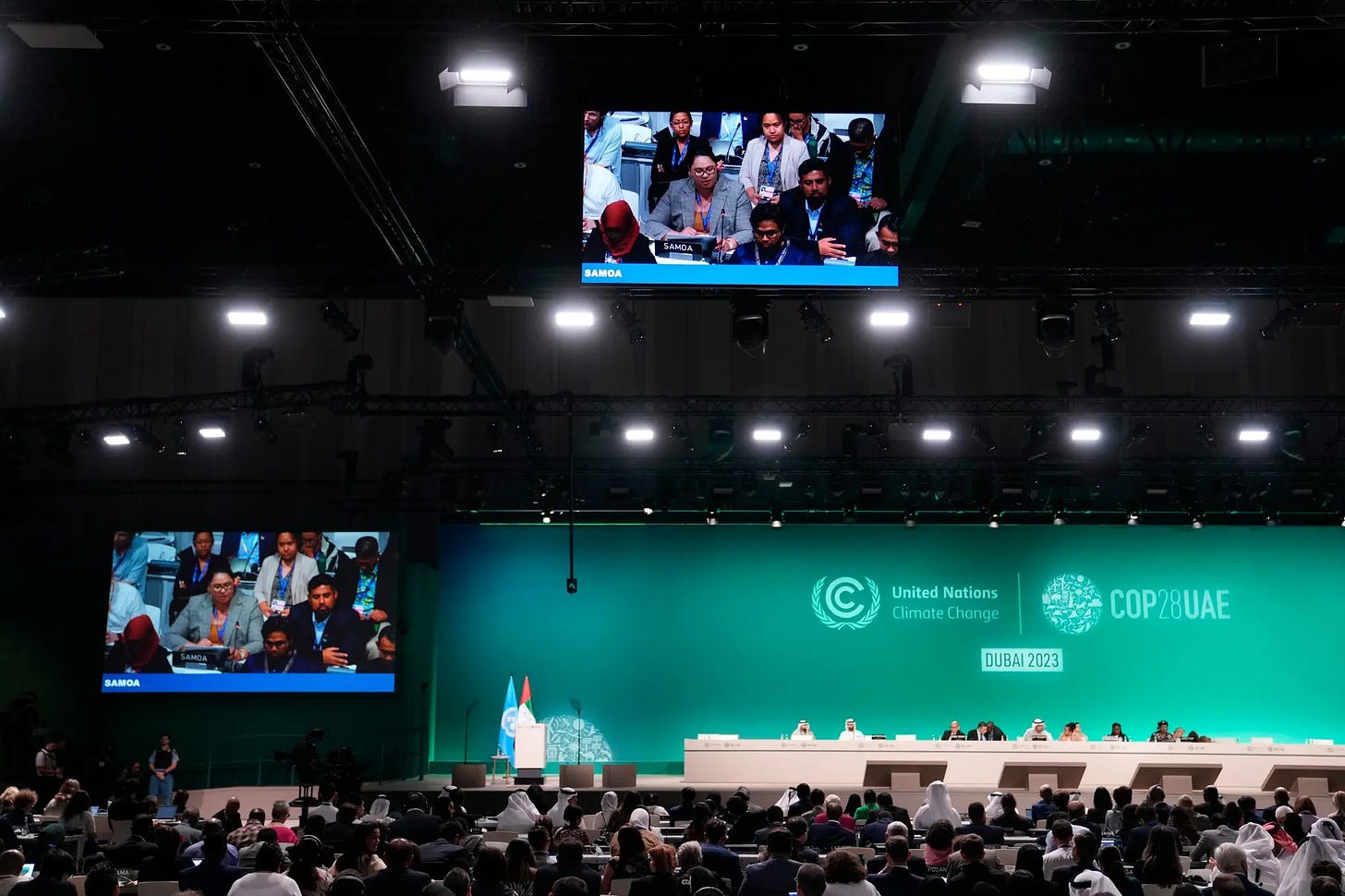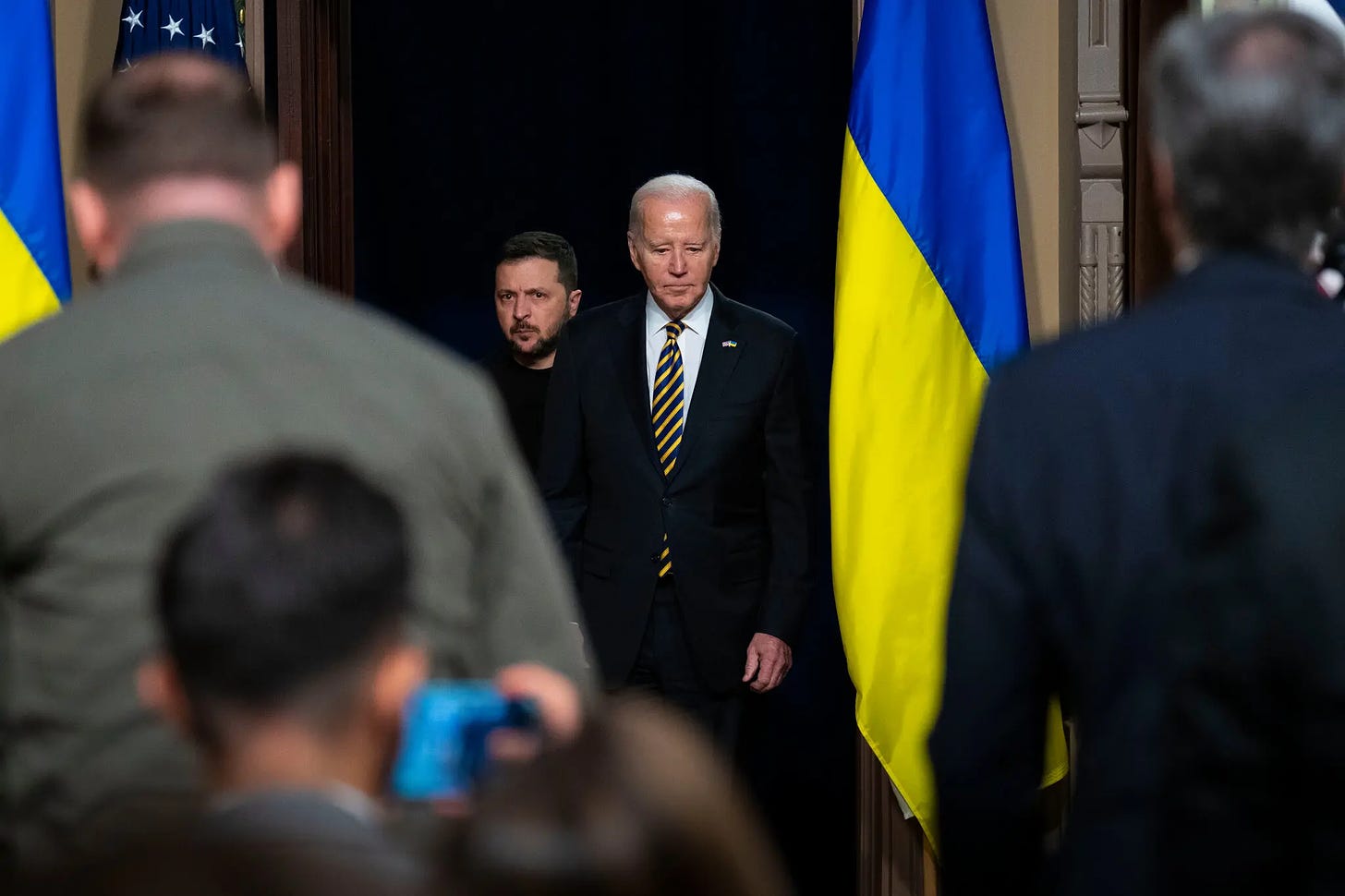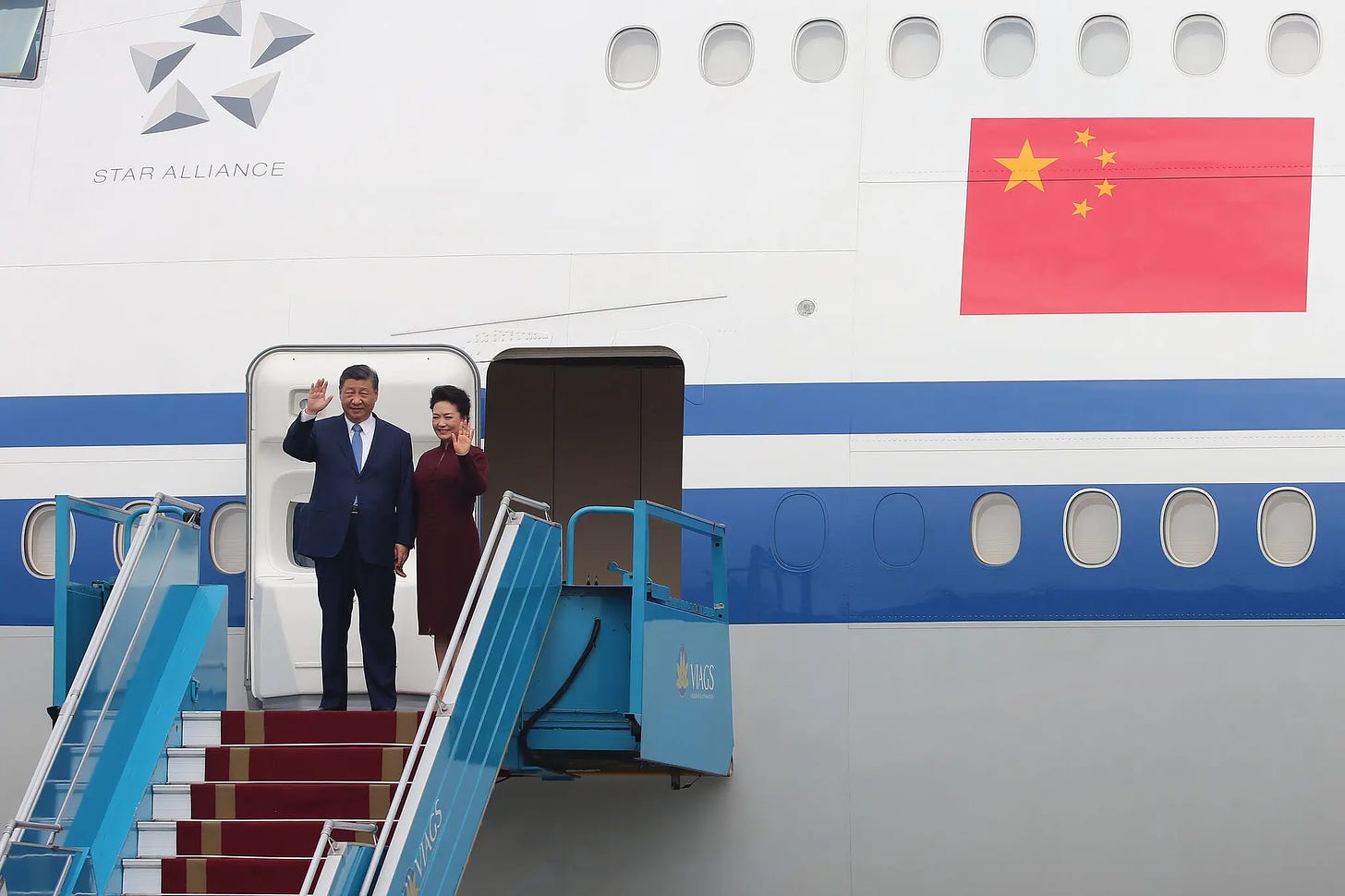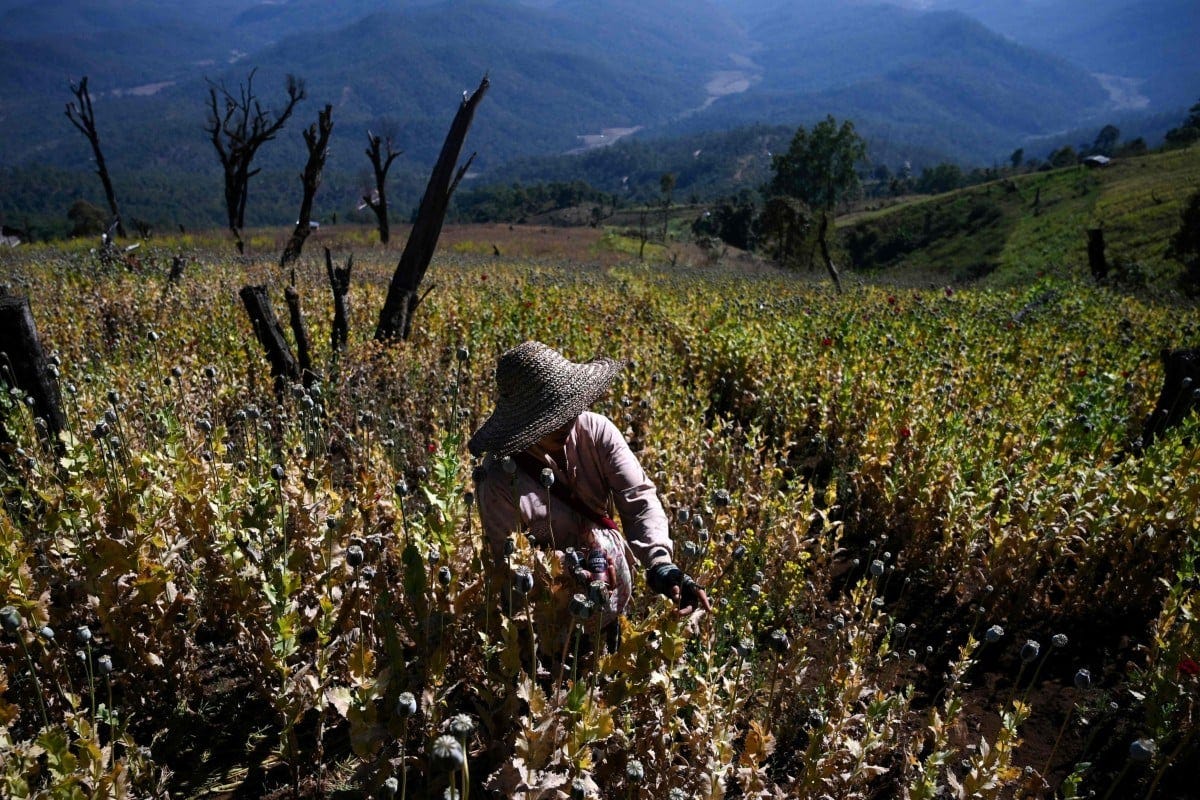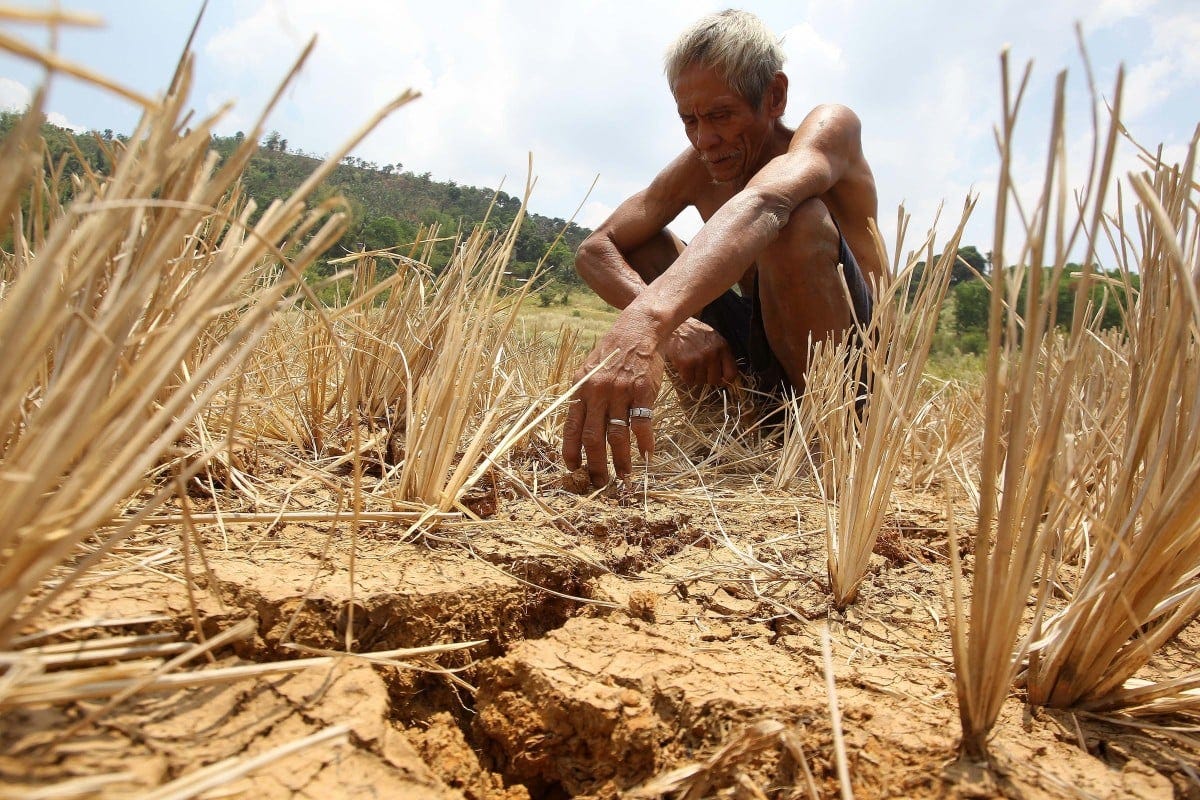Southeast Asia & World Briefs (15 Dec): COP28's historic climate deal; U.S. policy shifts with Israel, Xi's Vietnam outreach
Welcome to Friday, readers!
Today, we navigate through the groundbreaking COP28 agreement towards reducing fossil fuel dependency, to the shifting dynamics in U.S. foreign policy towards Israel and Ukraine.
Let’s get right into it!
Tables of Contents and Summaries
Geopolitics
🌍 COP28 Ends With Landmark Deal to Transition Away from Fossil Fuels Amid Global Warming Concerns
The COP28 summit concludes with a historic agreement to reduce fossil fuel usage, marking the first U.N. climate deal to directly address fossil fuels. Despite mixed reactions, the deal sets a precedent for future emission reduction efforts.
🇺🇸 President Biden Signals a Shift in U.S. Stance Towards Israel Amid Gaza Conflict
President Biden indicates a significant shift in U.S. policy towards Israel, urging changes in response to Israel's actions in the Gaza conflict and marking a departure from previous strong support.
🇺🇦 Ukrainian President Zelensky's Urgent Aid Request Meets Republican Opposition in U.S. Congress
President Zelensky's plea for urgent U.S. aid faces Republican resistance, linking aid to border security concerns and demanding a clear victory strategy for Ukraine.
🇻🇳 Xi Jinping's Vietnam Visit Highlights Strategic Balancing Act Amid U.S.-China Rivalry
Chinese President Xi Jinping's visit to Vietnam underscores Beijing's efforts to strengthen ties and influence in the region, amidst the complex U.S.-China rivalry and South China Sea disputes.
Social/Economic
🌿 Myanmar Overtakes Afghanistan as World's Leading Opium Producer Amid Political Turmoil
Myanmar emerges as the world's top opium producer, driven by economic instability and conflict post-military coup, overtaking Afghanistan following the Taliban's crackdown on poppy cultivation.
🌀 Philippines Experiences Fewest Storms in 25 Years Amid El Nino-Induced Drought Conditions
The Philippines records its lowest number of major storms in over two decades, with an impending severe drought linked to the El Nino phenomenon and potential climate change impacts.
Other Cool Readings:
Pro-China YouTube Network Used A.I. to Malign U.S., Report Finds, by the New York Times
Apparently, about 30 channels are found to create pro-China and anti-US contents since last year.
Geopolitics
COP28 Ends With Landmark Deal to Transition Away from Fossil Fuels Amid Global Warming Concerns
The COP28 U.N. climate summit in Dubai concluded with a groundbreaking agreement explicitly calling for a transition away from fossil fuels.
Intense debates between European leaders and vulnerable nations advocating for a "phaseout" of fossil fuels, and major oil exporters and fast-growing economies resisting this, led to a compromise.
The deal accelerates the shift from fossil fuels this decade, aims for net-zero carbon emissions by midcentury, and increases renewable energy and methane emission reductions.
First of Its Kind: This is the first U.N. climate deal to directly address the role of fossil fuels in global warming.
The deal received mixed reactions. European leaders hailed it as a major step, while small island nations expressed dissatisfaction due to loopholes.
Although the agreement is not legally binding, it aims to guide future national plans for reducing greenhouse gas emissions.
Challenges Ahead: Global fossil fuel emissions are at record highs, and the world is not on track to meet the necessary emission reductions.
There were debates over the role of carbon capture technology, equitable transition for developing countries, and financial support for low-income nations.
The summit, hosted by an oil-rich nation, faced criticisms of conflicts of interest but ended with a significant climate agreement.
President Biden Signals a Shift in U.S. Stance Towards Israel Amid Gaza Conflict
President Biden expressed concern that Israel is losing global support due to its actions in the Gaza war.
Biden suggested Israeli Prime Minister Netanyahu needs to make changes in his government, currently the most far-right in Israel's history.
This marks a significant change in the U.S. approach towards Israel, which had strongly backed Israel since the conflict began on October 7th following Hamas's attack.
Previous U.S. Support: The U.S. had supported Israel's military actions in Gaza, blocked calls for a ceasefire at the UN, and approved the sale of military equipment to Israel.
Netanyahu's Rejection: Israeli Prime Minister Netanyahu dismissed a U.S. proposal that involved a role for the Palestinian Authority in Gaza post-war.
Ukrainian President Zelensky's Urgent Aid Request Meets Republican Opposition in U.S. Congress
Ukrainian President Volodymyr Zelensky appealed to U.S. Congress for urgent aid to combat Russia's aggression.
Zelensky faced significant opposition from Republicans, who conditioned any new aid on President Biden's action to tighten border security.
Speaker Mike Johnson criticized the lack of a clear strategy for Ukraine's victory, a prerequisite for Republicans to approve military aid.
Biden's Proposal: President Biden sought Congress' approval for a $110.5 billion emergency bill, including $50 billion for Ukraine, but faced Republican blockade and public skepticism.
After Congressional discussions, Zelensky met with President Biden at the White House for further talks and a joint news conference.
Meanwhile, Ukraine's largest mobile operator experienced a significant cyberattack, disrupting service for millions.
EU Steps In: European Union leaders agreed to start negotiations for Ukraine's accession to the bloc.
The agreement is pivotal for Ukrainian President Volodymyr Zelensky, especially after his unsuccessful attempt to secure substantial U.S. military aid in Washington.
Russian President Vladimir Putin emphasized his commitment to persist in the conflict with Ukraine and withstand Western pressures during a lengthy press conference.
Xi Jinping's Vietnam Visit Highlights Strategic Balancing Act Amid U.S.-China Rivalry
Chinese leader Xi Jinping's visit to Vietnam signifies Beijing's efforts to strengthen ties with an important neighbor amidst U.S.-China rivalry.
Vietnam is in a sensitive position, balancing relations between the U.S. and China, with potential economic benefits and risks.
Xi seeks reassurances from Vietnam that it isn't aligning against China, especially after Vietnam's "comprehensive strategic partnership" with the U.S.
Community of Common Destiny: China proposes Vietnam join a "community of common destiny," a plan to garner regional support, but Vietnam resists, fearing Chinese dominance.
South China Sea Disputes: Territorial disputes in the South China Sea are a critical issue, with Vietnam and China clashing over claims to islands and resources.
Economic and Geopolitical Agenda: Discussions likely include a cargo rail project and cooperation on rare earth minerals, crucial for technology and of interest to both the U.S. and China.
Vietnam has significant rare-earth deposits, making it a strategic player in the global supply chain, currently dominated by China.
The U.S. seeks to collaborate with Vietnam on rare earths and has seen American companies investing in the country as an alternative to China.
Xi's Objectives: Xi aims to prevent Vietnam from moving closer to the U.S., especially in areas like rare earths and technology.
Vietnam's strategy involves balancing its relations with both superpowers, maintaining independence while navigating the challenges of great-power competition.
Vietnam faces internal resistance to leaning too much towards China, evidenced by past anti-China protests, adding complexity to its diplomatic maneuvers.
Social/Economic
Myanmar Overtakes Afghanistan as World's Leading Opium Producer Amid Political Turmoil
Myanmar has overtaken Afghanistan as the world's largest opium producer, following the Taliban's crackdown on poppy cultivation.
The UN report estimates Myanmar's opium production at 1,080 tonnes in 2023, a significant increase from 790 tonnes in the previous year.
Myanmar's opiate economy is valued between $1 billion and $2.4 billion, accounting for up to 4.1% of the country's GDP.
Factors Driving Opium Cultivation: Economic instability and conflict since the 2021 military coup have led many Myanmar farmers to grow opium poppies, especially with poor market access and high inflation.
Opium production in Myanmar has reached its highest level in over 20 years, with more sophisticated cultivation methods being used.
In contrast, Afghanistan's opium production plummeted to 330 tonnes in 2023, due to the Taliban's ban on poppy cultivation.
Myanmar's Shan State: Shan state, a major opium cultivating area, accounts for 88% of Myanmar's total opium poppy cultivation, with production intensifying despite ongoing conflict.
Drug Trafficking Hub: Shan state is also a key source of methamphetamine in Southeast Asia, controlled by various ethnic armed groups.
Military's Role: Analysts argue that Myanmar's military regime is not genuinely committed to combating the drug trade, with drug abuse control efforts reportedly having little impact.
Philippines Experiences Fewest Storms in 25 Years Amid El Nino-Induced Drought Conditions
The Philippines, typically affected by about 20 major storms annually, has experienced only 10 in 2023, the lowest since 1998.
With the year almost over, 2023 is set to break the record for the fewest storms in over two decades.
Officials warn of a severe drought from February to May 2024, potentially matching the intensity of the 1997-1998 El Nino-induced drought, the country's worst.
The state's chief climatologist suggests that climate change is likely a contributing factor to these unusual weather patterns.
El Nino Effects: The ongoing El Nino phenomenon is causing drier conditions and significant rainfall reduction in parts of the Philippines.
High Temperatures Expected: Manila may experience temperatures up to 38.3 degrees Celsius, with northern Luzon possibly reaching 41 degrees, similar to 1998 levels.



